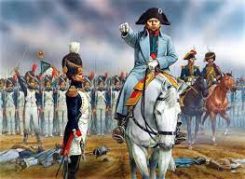Contents
Anyone who has read Napoleon‘s life knows that he died in exile on the island of Saint Helen in 1821. Yes, maybe his body died there but his soul actually died in the Battle of Waterloo, known as the last Napoleonic War which he fought against the coalition forces in 1815. Even though his physical death occurred 6 years later, he actually died on the battlefield, leaving his empire in Waterloo along with the dead of thousands of his soldiers.
Moreover, Waterloo is not an ordinary battle. In fact, it was a war that completely changed the history of Europe and shaped world politics from the Vienna Conference to the world wars. In this context, it could be said that if Napoleon had won the war, the world today would be a very different place. Maybe we would still be living in the age of empires, right?
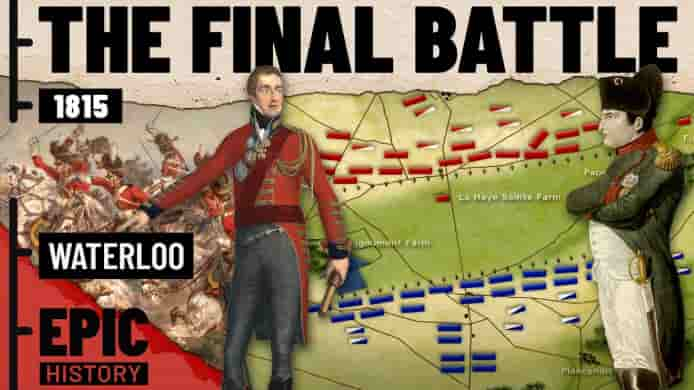
The Road to Waterloo: What Led to the Epic Battle?
On the other hand, although official history says that he died of stomach cancer in exile, there are also many people who think that he was poisoned by those who were worried that he would escape again and take over France. Imagine, you are watching on television in the evening the images of the friendship dinner organized by the French Monarch Emperor XX Napoleon in the palace and with the participation of the German king. Or let’s assume that the Austro-Hungarian Empire sends a harsh ultimatum to America, conveying that it is disturbed by the conflicts with the Russian Tsar in 2023.
In this concept, the Battle of Waterloo was such an important battle which changed history. No one could have imagined what the world would be like if the results of this war had been different. Therefore, while reading this article, please use some of your historical knowledge and your imagination and think.
The Democracy War of the People!
In other words the war determined the republic with today’s liberal democracy and forms of government. Apart from the bodies of tens of thousands of soldiers, perhaps the identity of the French empire and monarchy remained on the battlefield and disappearing over time. In order to emphasize the importance of this war, we would like to remind you of a famous quote made by Victor Hugo, the author of the books Last Day of a Condemned Man and Les Misérables; “Waterloo is not a battle, it is a change in the face of the universe.” Indeed, this war changed the face of the world, especially Europe, at that time.
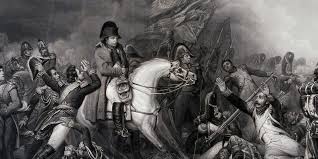
The Most Important Causes of the Waterloo Battle
As we all know, after the 1789 French Revolution, the kings who dominated Europe were worried that the republican revolution would spread to their own countries. In other words, the main reason for the Battle of Waterloo was to prevent Napoleon from gaining strength and spreading again and if possible, to destroy him.
As mentioned before, Europe’s Kings were worried about their own seats and perhaps their heads. But the flow of history is like a river; if it flows, you cannot stop it no matter what you do. In this context, the wars, which we also call the French Revolutionary Wars, started between France and the coalition forces led by countries such as England, Austria and Prussia.
Another important reason for the Battle of Waterloo is actually related to the first one. In other words, the idea of revolution and republic disturbed European monarchies as much as Napoleon. As a result, European kings organized this war to destroy the republican administration and thought system together with the French Emperor.
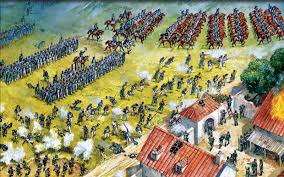
In this context, if we list the reasons for this war in items:
- To prevent Napoleon Bonaparte from regaining power and expanding in the European continent,
- To destroy the republican system and thought that emerged with the French Revolution and threatened the kingdoms of continental Europe.
Course of the Battle: Strategies and Turning Points
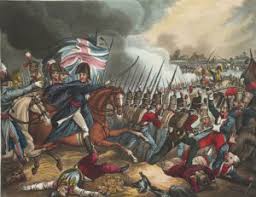
Napoleon, who returned unsuccessfully from the Russian War of 1812 and the occupation of Moscow and lost almost half of his army on the way, could not prevent the occupation of Paris and was removed from power and sent into exile. Then, in 1814, he escaped from exile and regained control of his country and became emperor. It is also clear that the love felt for him in his country made his job easier. Even though there are those who criticize and hate him fiercely, the French still talk about his revolutions and reforms with pride and remember him with gratitude.
His rapid return from exile to the rule of his country worried and trigger the kings in Europe to take actions against him. Although he made peace proposals to England and Austria, they were not accepted and Waterloo, the last Napoleonic War, started within the borders of today’s Belgium.
Wellington led the British army and he stayed in there the day before the battle. This is why the war called Waterloo. At the beginning of the war, while there were only the armies of England and France on the field, the Prussian army came to the aid of the British, and the war, which lasted for about 7 hours, resulted in the defeat of Napoleon.
His commanders nearby asked him, “What will we do now?” and the answer was “God knows, we’ll try to get to Paris first.” Indeed, Bonaparte returned to Paris after the war and surrendered to the British. The British exiled him to the island of Saint Helena and kept him under control. In this context, the Battle of Waterloo was Napoleon’s last battle and actually meant his death sentence.
Legacy of the Battle of Waterloo: Lessons from History
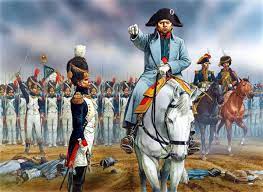
This war went down in world political history as Napoleon’s last battle and final defeat. In line with this, the French army was almost completely destroyed after this war. Additionally, many soldiers were captured by coalition forces. After the Battle of Waterloo, the monarchy was re-established in France. In other words, the idea and system of the republic in Europe, was suspended, albeit temporarily. In the wake of the war, France has entered a period of stagnation that will take many years to recover from.
As mentioned in Tolstoy’s War and Peace, in the Battle of Austerlitz in 1805, Napoleon reached his peak in terms of the French Empire and remained at the top until 1812. Tolstoy, who analyzes this period and Emperor Bonaparte very well, states that his withdrawal after the occupation of Moscow was actually the beginning of the end for him. At this point, Waterloo is not just a lost battle for him but actually the end of his life.
At this point, if we were to list the results of the Battle of Waterloo in items;
- The French army was severely defeated and almost entirely destroyed.
- Napoleon to British surrendered in Paris and was later exiled to the island of Saint Helena by coalition forces.
- The Napoleonic Wars which lasted for many years ended and after the Congress of Vienna, a peace environment was established in Europe that would last for approximately 150 years.
- Kingship and monarchy were re-established in France.
